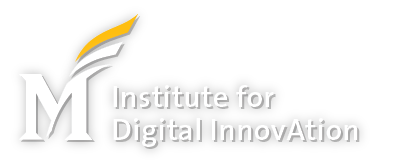2024

Mingrui Liu
2024-2025
Assistant Professor
Department of Computer Science
College of Engineering and
Computing
Project Title: Advancing Information Technology Automation: New Framework for Privacy-Preserving Personalized Foundation Models with Lightweight Adaptation
Information technology (IT) automation, which refers to the use of software to repeatable instructions and processes to reduce human interactions with IT systems, is an important technique for digital innovation. For example, the RedHat Linux system can automate manual configurations and simplify day-to-day administration. However, the service provider can typically only provide a single common solution for every end user and does not have access to users’ data, which may not be satisfactory for each user. This research aims to design innovative approaches to create a common foundation model for the service provider which only requires lightweight adaptation to obtain personalized models for different IT companies, in a private-preserving manner. Therefore, each company can easily adapt the common foundation model for their tasks. The research will promote resource equality and diversity among IT organizations and individual end users, and improve the sustainability and security of the digital society.
Partners:
Dr. Wei Zhang, Senior Research Scientist, IBM T. J. Watson Research Center

Patrick Vora
2024-2025
Associate Professor
Department of Physics and Astronomy
College of Science
Project Title: Atom-Based Quantum RF Electric Field Sensors
This proposal aims to create a chip-scale radio frequency (RF) electric field sensor using rubidium atoms excited into “Rydberg” states. The unique quantum properties of these atoms allow for highly sensitive detection of electric fields, which is crucial as the RF spectrum becomes more crowded and vulnerable to interference. By using innovative fabrication techniques at Mason’s Nanofabrication Facility and photonic chip design at Leidos Inc., we will develop a sensor that is compact, energy-efficient, and highly resistant to interference such as electromagnetic pulse attacks. The technology has the potential to significantly improve the performance of RF sensors, reducing their size and power consumption. This advancement will benefit industries such as telecommunications, defense, and autonomous systems, offering improved detection capabilities, increased resilience, and more efficient use of the RF spectrum, ultimately contributing to more robust and reliable communication and sensing technologies.
Partners:
Ethan Ahn, Associate Professor, Department of Electrical and Computer Engineering
Elizabeth Iwasawa, Quantum Technology Group Lead, Leidos Inc.
Bradley Moores, Quantum Photonics Lead, Leidos Inc.
2023

Emanuela Marasco
2023-2024
Assistant Professor
Department of Information Sciences and Technology
College of Engineering and
Computing
Project Title: Video-based, Secure, Accurate and Usable Contactless Fingerprint Authentication in Smartphones
The rapid innovation of smartphone technology with highly sophisticated cameras and accelerated computing has enabled reliable, touchless and flexible biometric solutions. Finger photo recognition has become a popular alternative to touch-based fingerprint authentication in mobile devices. These systems typically operate by processing a single RGB image and are challenged by device diversity, background and illumination variations, and limited data for training, which degrades both accuracy and robustness to presentation attacks. This project seeks to overcome these limitations by creating a novel identity authentication technology based on finger videos. This will be accomplished by designing accurate finger video-based matching and anti-spoofing algorithms and investigating effective fusion strategies to combine these two modules. The proposed framework will compensate for the lack of a robust user authentication mechanism that complies with Federal mandates, maintain mobile device ease of use, and enable the use of fingerprints for mobile authentication in large-scale National ID programs.
Partners:
Karl Ricanek, Professor, Department of Computer Science, University of North Carolina Wilmington & Founder of Lapetus Solutions Inc.

Craig Yu
2023-2024
Associate Professor
Department of Computer Science
College of Engineering and
Computing
Project Title: Advancing Human-Machine and Human-Human Collaborations via Networked Extended Reality Innovations
With the growing availability of high-speed networks (5G) and emerging extended reality (XR) technologies including virtual reality (VR) and augmented reality (AR), there is tremendous synergy in devising novel networked XR innovations such as VR teleoperation, VR/AR collaboration, and AR storytelling for transforming human-human and human-machine collaborations.
Through GMU’s Institute for Digital InnovAtion (IDIA), Professor Craig Yu aims to lead his Design Computing and Extended Reality (DCXR) team to collaborate with the National Institute of Standards and Technology (NIST), Adobe Research, T-Mobile, as well as local and overseas academic partners (Virginia Tech, Purdue University, and National Yang Ming Chiao Tung University in Taiwan) to untap the full potential of novel networked XR innovations.
The research partnerships will inform the industry and the government on strategic investments and future standards on telecommunication infrastructures. The team will also investigate how the latest infrastructures will boost the capabilities of networked extended reality systems.
Partners:
Simon Su, Computer Scientist, High Performance Computing and Visualization Group, National Institute of Standards and Technology
Cuong Nguyen, Research Scientist, Adobe Creative Intelligence Lab
Kafi Hassan, Principal Technology Development Strategist, Advanced and Emerging Technology Group, T-Mobile USA
Carley Fisher-Maltese, Associate Professor, School of Education, George Mason University
Hsueh-Cheng (Nick) Wang, Associate Professor, Electrical and Computer Engineering Department, National Yang Ming Chiao Tung University
Brendan David-John, Assistant Professor, Computer Science Department, Virginia Tech
Christos Mousas, Assistant Professor, Department of Computer Graphics Technology, Purdue University

Parth Pathak
2023-2024
Associate Professor
Department of Computer Science
College of Engineering and
Computing
Project Title: Predicting RF Exposure in Today’s Ultra-dense Wireless Networks
Today’s wireless network providers are faced with a complex challenge. As they scale their networks to billions of devices, ensuring that their networks remain compliant with FCC RF exposure guidelines involves expensive and laborious measurements. The aim of this project is to develop a novel framework for RF exposure prediction which embeds the environment information (e.g., 3D maps of buildings) directly into the ray tracing process through the use of deep learning. The proposed models will carefully incorporate wireless link/channel parameters and learn their interactions with surroundings to accurately and efficiently predict the received power. With a close collaboration with AT&T labs, the models will be developed using large-scale datasets from operational networks in light of various practical deployment constraints. The project has the potential to reduce the cost of wireless network deployment and operations, making them more affordable for Internet access and curbing the digital divide.
Partners:
AT&T Labs

Jiasun Li
2023-2024
Assistant Professor
Area of Finance
School of Business
Project Title: Organizing an Efficient and Inclusive Digital Economy: The Roles of Recent Technological Breakthroughs in Verifiable Computation
The digital age imposes a question on how to optimally organize a myriad of resource-hungry digital services (e.g., AI computation or big data storage). This project thus compares different digital service models (such as on-premises, cloud, and decentralized) in terms of economic efficiency, inclusiveness, and sustainability, factoring in recent advances in verifiable computation. We will leverage the PI’s expertise in economic modeling and cross-disciplinary research experiences, together with the industry partner’s leading expertise in verifiable computation and decentralized storage to tackle related problems. Impacts from this research include shedding light on cloud models currently dominated by giants such as Amazon Web Service (AWS) as well as evaluating the promise of emerging ”Web 3.0” models that have been receiving much attention in recent years. In this process, we aim to unlock the full economic potential of our digital future, while guiding its fair, inclusive, and sustainable growth.
Partners:
Protocol Labs

Jonathan Auerbach
2023-2024
Assistant Professor
Department of Statistics
College of Engineering and
Computing
Project Title: A Scientific Framework for Evaluating America’s Data Infrastructure
Public data support our democracy in a number of crucial ways, from ensuring fair representation and division of government resources to advancing scientific research. The problem is that the federal agencies that produce this data are in danger. Recent events reveal the integrity of public data is at risk, from the politicization of census operations to the withholding of vital information during the pandemic.
We are developing a scientific framework for evaluating the health of data infrastructure. Our research unifies an extensive literature describing how data should be collected and disseminated—for example, the US Statistical Policy Directives, the National Academies Principles and Practices for a Federal Statistical Agency, and the United Nations Fundamental Principles of Official Statistics. Our goal is to measure the extent to which these ideals are obtained in practice. Our measurements will be reported in an annual report on The State of the US Data Infrastructure.
Partners:
Claire McKay Bowen, Statistical Methods Group Lead, Urban Institute
Constance Citro, Senior Scholar and former Director, National Academies Committee on National Statistics
Steve Pierson, Director of Science Policy, American Statistical Association
Nancy Potok, Fellow and former Chief Statistician of the United States, Urban Institute

Kun Sun
2023-2024
Professor
Department of Information Sciences and Technology
College of Engineering and
Computing
Project Title: Reference-based Automatic Program Repair
All software, either opens source or proprietary software, contains bugs. We propose a new automatic program repair (APR) technique that uses reference implementations for automatically patching a vulnerable target code. With the inferred vulnerability and desired specification from the reference implementations, our solution can accurately locate the vulnerable statements in the target code and automatically generate the security patch. As a payment processing company, VISA relies heavily on its software systems to ensure secure and reliable transactions for its customers. Software bugs and vulnerabilities can lead to system downtime, data breaches, and financial losses. Our work can help detect these issues and automatically generate patches or fixes, reducing the time and resources required to identify and remediate them manually. Our research activities align well with the mission and scope of IDIA by promoting innovation, enhancing digital infrastructure, ensuring cybersecurity, and supporting sustainable development.
Partners:
Dr. Yan Zhai, Senior Director of Cybersecurity, Visa, Inc.

